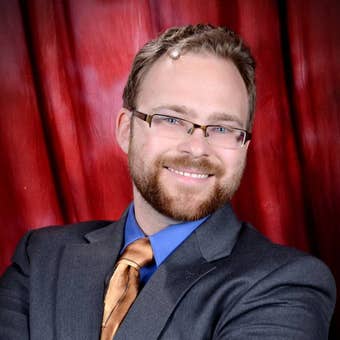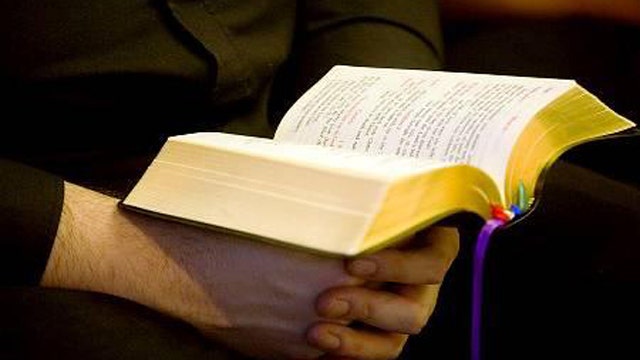Does science support the Book of Genesis?
Dr. Hugh Ross tries to make the connection between the Bible and science
Many Christians have rejected the scientific theory of evolution in part because they think it rules out the existence of a historical Adam and Eve. Yet some scientists and theologians argue that recent breakthroughs in genetics make a historical Adam and Eve compatible with evolution, and that this development may help bridge what many see as a conflict between faith and science.
"For over 160 years, the societal conflict over evolution has been deep and stubborn. But now, in a surprise twist, evolutionary science is making space for Adam and Eve," S. Joshua Swamidass, an associate professor at the Washington University School of Medicine in St. Louis, Missouri, told Fox News Digital. "It turns out that the theological questions are about genealogical ancestry, not genetics. In this paradigm shift, we are finding a better way forward, a better story to tell."
In his book "The Genealogical Adam and Eve: The Surprising Science of Universal Ancestry," Swamidass argues that genetics and evolutionary theory do not conflict with the existence of Adam and Eve, universal ancestors of all humans whom Jesus died to save.
Modern genetics only captures a small sliver of the story of human ancestry, Swamidass writes. While your parents are both 100 percent your parents, you only get roughly 50 percent of your DNA from each of them, and only about 25 percent of your DNA from your grandparents. As you go farther back, you have more genealogical ancestors who each contribute less and less to your DNA.
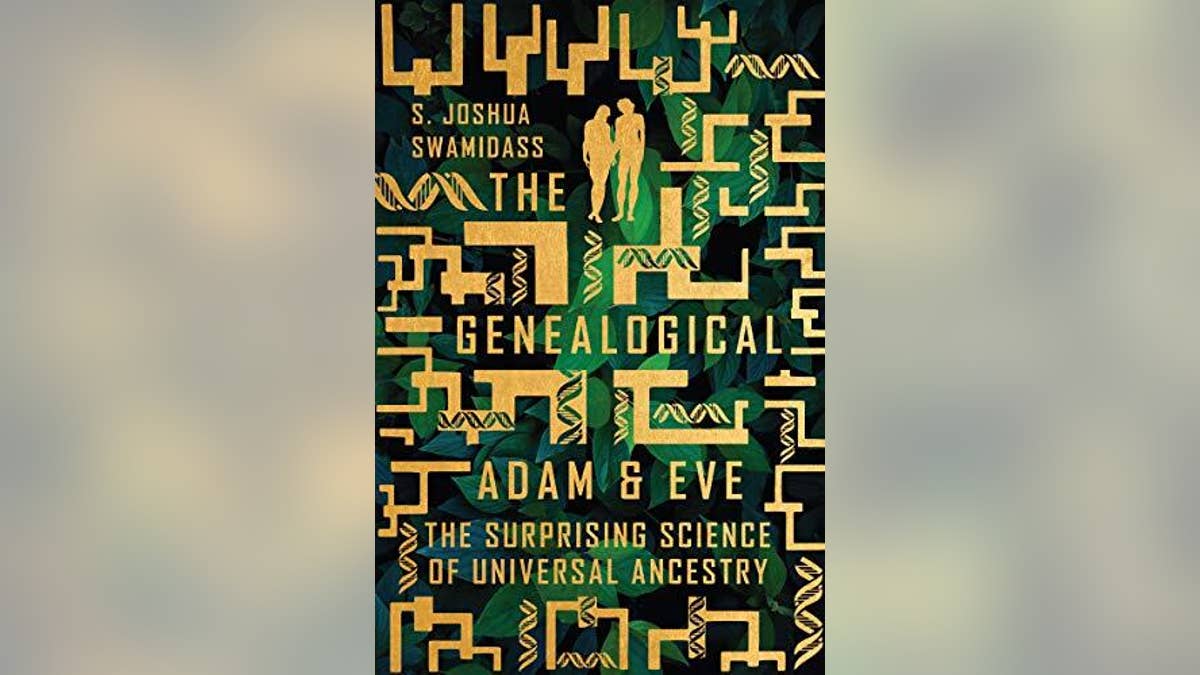
The Genealogical Adam & Eve: The Surprising Science of Universal Ancestry cover courtesy S. Joshua Swamidass
While universal genetic ancestors are rare, universal genealogical ancestors are surprisingly common, the author noted. Each individual has four grandparents, eight great-grandparents, and so on, but population size in past generations tends to get smaller, so overlap is inevitable. He argues that by 1 A.D., every person on Earth was descended from Adam and Eve.
Swamidass' model of a Genealogical Adam and Eve (GAE) claims that biological humans may still share a common ancestor with apes according to the theory of evolution, but God could have created Adam and Eve from the dust and a rib, without parents, and these two became the ancestors of all humans by 1 A.D. Swamidass claims that Genesis appears to require biological humans outside of Adam and Eve's family line because after Cain murders Abel and leaves his parents, he fears that he will be killed, he acquires a wife, and he builds a city.
"Most readers of Genesis understood Adam and Eve to be (1) ancestors of us all, and (2) miraculously created without parents of their own," Swamidass told Fox News Digital. "In contrast, evolution teaches that (3) we share common ancestors with apes, and (4) we arise from a large population, not a single couple. This conflict of fact only seemed solvable by revising foundational Christian theological beliefs, or by rejecting evolution."

S. Joshua Swamidass, photo courtesy of Joshua Swamidass. (S. Joshua Swamidass)
"But now, clearing up some big scientific understandings, we know that all four of these things can be true at the same time," Swamidass said. "Even if Adam and Eve lived as recently as just 6,000 years ago, they would be the genealogical ancestors of everyone across the globe by AD 1. They could even have been created de novo, from the dust and a rib. Of course, at the same time, we would also descend from people outside the Garden, others whom God created by a providentially governed process of evolution."
GERMANY BIBLE MUSEUM PUTS ON PLAY PRESENTING JESUS AS TRANSGENDER, WEEKS BEFORE CHRISTMAS
Swamidass' GAE model has already made waves in theological and scientific circles. The BioLogos Foundation, a Christian nonprofit founded by NIH Director Francis Collins that embraces the scientific theory of evolution, appears to have reversed its position on Adam and Eve, deleting articles claiming that genetics ruled out a historical Adam and Eve and posting articles that echo Swamidass' model. BioLogos did not respond to Fox News Digital's request for comment on the matter.
William Lane Craig, a Christian philosophy professor at Houston Baptist University and Biola University's Talbot School of Theology, published the book "In Quest of the Historical Adam: A Biblical and Scientific Exploration" in September. His book echoes Swamidass' arguments – although he places Adam and Eve further back in history.
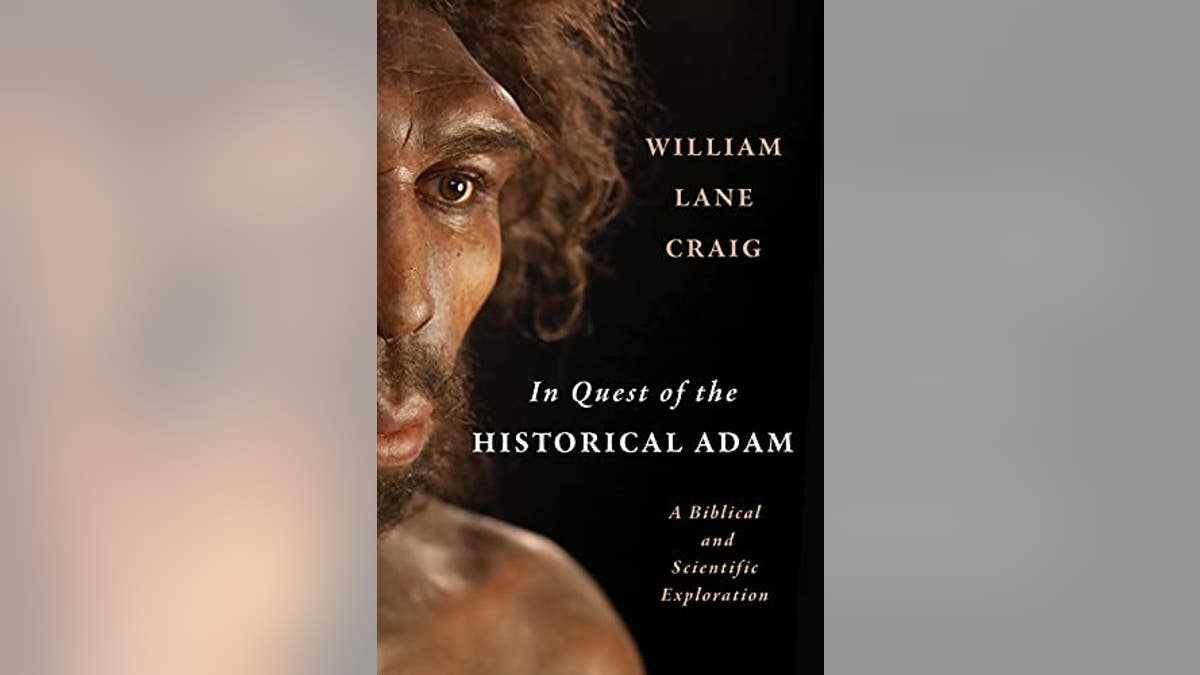
In Quest of the Historical Adam by William Lane Craig. Photo courtesy S. Joshua Swamidass.
Reasons to Believe (RTB), a Christian nonprofit dedicated to blending faith and science in a way that questions evolution but embraces an old earth, published a book in 2020 in which the author, Anjeanette Roberts, wrote that Swamidass' model "provides a way for biblical interpretations of a historical Adam and Eve—understood as universal, genealogical ancestors for all humanity living at the time of Christ and today—to be reconciled with mainstream evolutionary science."
Michael Murray, a Christian philosophy professor at Franklin and Marshall College, recently said at an evangelical conference that due to the work of Swamidass, Craig, and others, "we have arrived at the point where we can confidently affirm that the basic evolutionary story is not the threat to Christian orthodoxy that we once feared, and not because we had to compromise on orthodoxy."
"My view is that recent findings in genetics and paleontology have shown that our best scientific theories and data do not rule out a historical Adam and Eve," Murray told Fox News Digital. He said the developments do not make Adam and Eve more or less likely, but they do show that, "for all we know, there might have been a pair that is the ancestor of all extant humans or extant Homo sapiens."
CHRISTIAN MINISTRY APPEALS SPLC CASE TO SUPREME COURT, CHALLENGING NYT V. SULLIVAN
Murray noted that "there was an emerging consensus among both secular scientists and scientists of faith that the relevant empirical data was flatly inconsistent with an ancestral pair." Yet these recent developments have shown "that an ancestral pair is not flatly ruled out as was previously thought."
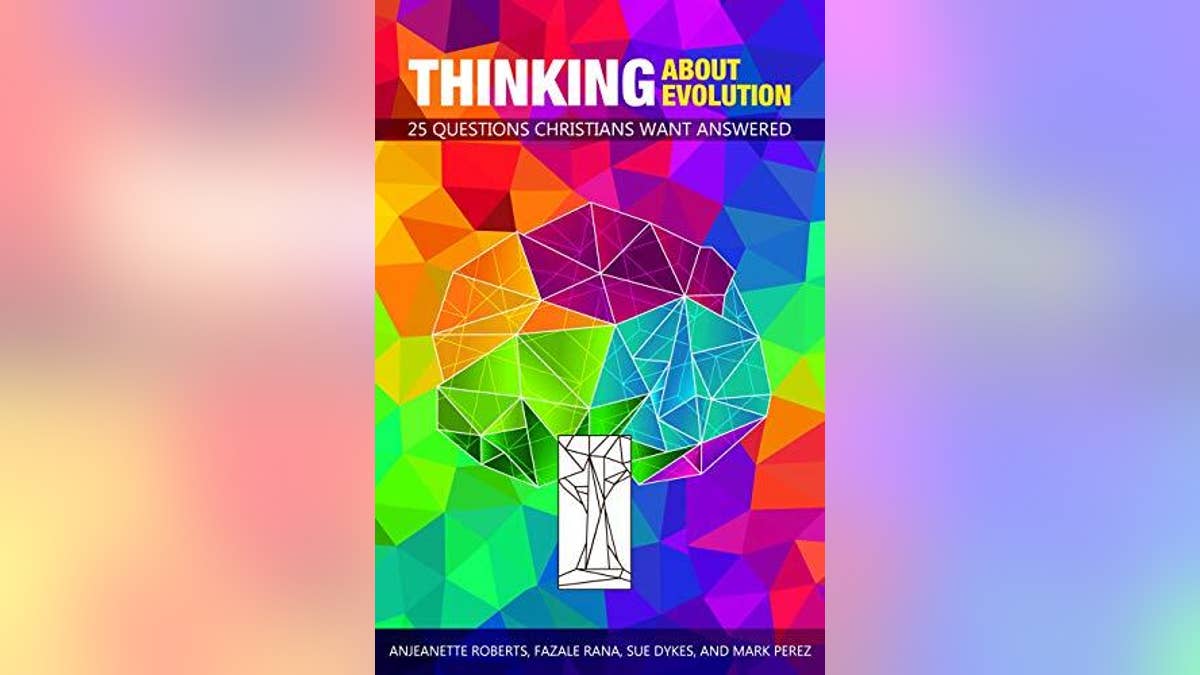
Thinking About Evolution, cover photo courtesy S. Joshua Swamidass.
Nathan Lents, a secular professor of biology at John Jay College, told Fox News Digital that recent developments have made Adam and Eve more plausible.
"I would not say that there is any evidence, historical or scientific, in favor of the existence of Adam and Eve, as they are presented in the Bible," Lents said. "However, there have been developments in our understanding of ancestry and genetics that allow for the possibility of universal ancestors of the entire human population in the surprisingly recent past."
He noted that "there are important caveats" about the possibility of universal ancestors, such as isolated populations, and about the impact of the GAE model – it does not involve "sole progenitorship of the human race from just two people."
Many Christians disagree with the model, however. According to Gallup, 40 percent of Americans say God created man in his present form, and between 38 percent and 66 percent of White evangelical Protestants say the same, according to the Pew Research Center.
Fazale Rana, vice president of research and apologetics at RTB, told Fox News Digital that the models of Swamidass and Craig "both suffer from theological problems, despite their agreement with mainstream science." Rana said that since the models do not consider Adam and Eve the sole progenitors of humanity, they "potentially put key Christian doctrines (such as human exceptionalism, the Fall, Original Sin and the Atonement) in harm’s way."
Dr. Nathaniel Jeanson, a Christian biologist with the young-earth creationist organization Answers in Genesis, told Fox News Digital that Swamidass' "definition of Adam and eve is almost unrecognizable from a Young Earth perspective; it’s essentially the mainstream model with an undetectable supernaturally created pair inserted at some point."
Jeanson said that his forthcoming book "Traced: Human DNA's Big Surprise" uses the same developments in genetics to show that "the DNA history of mankind makes sense from a young-earth perspective," making and examining testable predictions.
Yet even Rana and Jeanson admitted that the GAE model may decrease the public perception of a conflict between science and religion.
"It may soften the antagonism on the part of the evolutionary community," Jeanson said.
Rana described these developments as "good for the Church" because "they offer models that preserve the biblical narrative of human origins for those people who are persuaded by evidence for human evolution." Yet he suggested that the GAE models "will have little or no impact" in the scientific community because they do not offer anything "that distinguishes them from materialistic evolutionary models."
The secular Lents noted that "science and Christianity have been pitted against each other unnecessarily. Conflicts over evolution have bred mistrust on both sides that has bled into other issues," like skepticism about vaccines.
"When Christians and evolutionary science find harmony and common ground, or at least a peaceful truce, we can build trust and begin to work together on matters that threaten the healthy, safety, and flourishing of us all," Lents said. "For this reason, I applaud the work that Christian scientists are doing to bring greater acceptance and understanding of science into their communities. We need not be at war with each other."
Ken Keathley, a theology professor at Southeastern Baptist Theological Seminary, said that the efforts of Swamidass, Craig, and others "have been very fruitfrul."
"One doesn’t have to agree with every assertion or conclusion made by Swamidass, Craig, or Rana and Ross to appreciate the advances in thinking," Keithley told Fox News Digital. "Taken together, the work being done by these scholars demonstrate that there is no inherent conflict between faith and science."
Murray noted that "the scientific community and the conservative Christian theological community were increasingly polarized on the issue of an ancestral human pair," but thanks to the GAE models, "this standoff has now been defused." While "some scientists might think that the scenarios that involve belief in an ancestral pair are implausible, … we have gotten past the point of scientists arguing that the traditional view is impossible."
CLICK HERE TO GET THE FOX NEWS APP
Swamidass told Fox News Digital that "in making space for Adam and Eve, secular scientists have an opportunity to offer an olive branch to religious communities. I'm encouraged to see that many religious leaders – such as Ken Keathley from the SBC, William Lane Craig, and [RTB President] Hugh Ross – have been eager to take the olive branch. For those seeking to advance science in a fractured society, this is very good news indeed."








































